 Young at Heart Message As most of you know, I’ve gotten into rock climbing since I’ve moved to Calgary. And, perhaps unfortunately for you, I’ve realized that rock climbing makes for good examples in sermons, weirdly enough. So, let’s talk about rock climbing for a minute! I’m not a stellar rock climber, but I am getting better at it, a little bit. I’ve been working really hard on learning to climb routes that have minor overhangs. There are lots of different ways that an overhang can look, but I’ll show you two examples: This is an example of an almost horizontal overhang: That might not seem like it would be difficult, but you’ll just have to believe me that it is – especially if you are just getting started on learning how to do overhangs. Now, this picture is from this past weekend, and that climb is at a climbing location that’s different than the place I usually go. So, I was able to do this climb because they have some overhangs at this location that are a bit better for beginners. But, what I really want to talk about is a climb I’ve been trying so hard to master at the location we usually go to. I haven’t been able to do it. Sadly, I don’t have any photos, but what’s happening is I can get to one particular spot, and I cannot figure out how to get over it to get to the top of the overhang. I’ve tried about 10 times now. My arms get too tired and weak before I can reach the next hold. Metaphorically, I begin to sink. Every time I try this climb, I think I’m going to do something differently, or I’m going to figure out a new way to move my arms so I can reach the next hold. Every time, there’s a voice that says it will be different this time – just have faith. And every time, I feel like I fail. Like Peter, I listened to that voice that says “climb,” and every time, I get to that same spot, and I falter and I start to sink. Unlike Peter, there’s no one to reach out a hand and catch me – or perhaps there is, in the sense that I am harnessed in and there’s no real risk of falling. The Message
Alright, I’d love to talk about rock climbing all day, but let’s shift gears and talk about Peter instead. There are two ways (at least) that I could preach about this passage on Peter, and of course pastors typically choose one of the two ways. I could preach about Peter’s lack of faith. Peter essentially says “hey Jesus, if you tell me to, I’ll walk on water toward you…really! Looks easy…” And then he starts to walk toward Jesus, and he becomes aware of his surroundings, loses confidence, and begins to sink. We could talk about how he loses faith in this moment and needs Jesus to rescue him. We could cast him as a sinful doubter. But looking at it this way leads us to believe that this is a failure on Peter’s part. More importantly, it leads us to wonder if, every time we struggle, God sees us as failures. I don’t care to look at it this way. First of all, Peter isn’t Jesus – he isn’t the Messiah, and he isn’t the Son of God. He’s a normal guy trying to figure out faith, muddling through life just like the rest of us. He’s wrestling with faith and trust in Jesus just like most of us do from time to time. Not to mention, of all the disciples in the boat, he’s the only one who even attempted to walk on water. Is he a sinful doubter? Or, is he the only one with the bold courage required to take a leap of faith—or to willingly step into the storm? I know that my physical ability to get over the overhang climb I’ve been wrestling with is limited. And yet, I will continue to try over and over again, and maybe someday I’ll get it. Or maybe I won’t, but that’s not what matters. Just like sinking isn’t what matters in Peter’s story. What matters is two things: 1. That Peter took a leap of faith and stepped out onto the water and tried something that defies the laws of nature and that no human is actually capable of doing in the first place, and, 2. That he knew that if he did falter, Jesus would not let him drown – that Jesus would rescue him. Peter took a risk because he trusted that Jesus would rescue him if things didn’t go as he expected. It might not have been pretty – he may have been wet and cold, scared and a bit shaky after the rescue. But he was certain Jesus would rescue him. I think it’s easy to get confused when Jesus follows up his rescue with “You surely don’t have much faith. Why do you doubt?” But, I don’t think this was intended to make Peter feel ashamed or feel like a failure. It feels more tongue-in-cheek to me. I could imagine Jesus giving Peter a sly smile here, knowing that what he just did was actually amazing and showed incredible faith. Doubt is a normal and important element in fostering a healthy spiritual life, and the fact that we see Peter experience it helps us relate to him. We experience doubt too – all the time! But, we also see Jesus extending his hand, reminding us that God is with us in every storm. And knowing that God is there waiting to rescue us when we need it is comforting. We cannot expect that life won’t ever be hard. We all have enough life experience at this point that we know this isn’t true. But, we can know that when we step off that boat, Jesus is waiting, hand outstretched, to catch us. We may not come out of that water looking like rainbows and roses because life sometimes wears us down. But if we reach out a hand and ask Jesus to rescue us, he is ready and waiting. What that looks like may not always be what we expect, and we may not always be able to see that it is Jesus until we are out of the water and safely on land again. Peter shows us that doubt and questions are not a reason that Jesus would leave us to flounder on our own. The storm is raging around Peter, the wind is howling – of course he’s going to experience fear and doubt. That is a very normal part of human existence and of our faith journeys. The fact that we get to be flies on the wall – or perhaps seagulls in the air - as we watch Peter struggle with the same things we do is helpful for us. It helps us to feel normal when we have questions, or when we step off the boat and suddenly feel like we’re in danger. It is reassuring to hear the Good News from Peter’s story – that Jesus seeks us and reaches out to rescue us from danger. Jesus reaches for us even if we have not yet extended our hand toward him. So, when the storm is raging, when the wind is howling, when you feel like your attempts to stay on the water are feeble at best, and impossible at worst, know that Jesus reaches for you through it all. Even if you don’t have the energy or the courage or the strength, even if you feel like your faith is shaken, Jesus is there to rescue you. He may be difficult to recognize because he may reach out in many different ways. But he is always reaching for you. May you take comfort in knowing that no matter how turbulent the storm may be, Jesus is reaching out his hand for you. Yesterday, today, tomorrow, and always, Jesus has been there and will always be there for you. Amen. Let us pray: God, we often have Wandering Hearts like Peter - one moment, we feel confident in our faith and certain that nothing could cause us to sink. The next moment, we find ourselves in sinking. In these moments God, we are so grateful that you are there to reach for us, to pull our heads above water, and to rescue us from danger. God, sometimes when we are sinking, it can feel to us like we’re failing you. But you’ve shown us that you don’t see it as failure. You see it as a leap of faith - a chance to try and even if we don’t succeed, we’ve demonstrated our faith in you by simply trying. We pray, God, that you will never let us sink and you will always reach for us when we feel uncertain, afraid, or like the storm around us is too much to handle. Rescue us from danger, again and again. In Jesus’ name we pray. Amen.
0 Comments
 Young at Heart Message Like many of us, Peter has a Wandering Heart. His journey is not polished, or linear, or perfect, but he is always tethered to the love of God. When you look closely at Peter’s story, you find Jesus at each step along the way—offering him abundance, catching him when he begins to sink, challenging him when he stands in the way, washing his feet, predicting his betrayal, and offering him agapē love. This Lent, we’re joining Peter in figuring out faith. We’re not idolizing or vilifying him. Instead, we’re hoping to wander alongside him, open to what we might learn about Jesus (and ourselves) by stepping into Peter’s shoes. I don’t know if you have ever literally stepped into someone else’s shoes, but it can be a rather unpleasant (and sometimes smelly!) experience! Often, trying to figuratively step into someone else’s shoes can be quite difficult, because we can only approach life by looking through our own lens. Of course, we try to look through the lens of someone else, but it isn’t always easy. So, let’s look at today’s scripture and try to put ourselves in Peter’s shoes for a moment. I’ll re-tell the scripture reading and insert some questions we can ask as we ponder the story again. Let’s look at the story in a bit better detail: One day as Jesus was by the Sea of Galilee, people began to crowd around him, trying to hear what he had to say. On the shore, Jesus saw two boats where the fishermen were washing their nets after a long night of fishing. Imagine how it might have felt to come back from a long, unsuccessful night of back-aching labor trying to catch fish for a living. Jesus climbed into the boat that belonged to Simon Peter and asked him to take it out into the water so he could teach the people who had come to hear him speak. Now, imagine that this fishing boat is your only means of feeding your family and earning a living, and Jesus is asking to borrow the boat. After he was done teaching the people, Jesus told Simon Peter, “Take the boat into deeper water and let out your nets so you can catch some fish.” Simon Peter told Jesus, “Sir, we've been out here all night trying to catch fish but our nets have come up empty.” How might Peter have felt? He does this for a living, he was out all night with no luck, and now someone who knows nothing about his trade is telling him to go back out again. “But if you say so, we’ll try again.” So Simon Peter and the other fishermen on the boat let out their nets. Soon they caught so many fish that their nets began to break! They called to their friends in the other boat to come help them with their enormous catch. Imagine the trust and faith these men must have had to go out again despite an entire night not catching any fish! And, how well their faith was solidified by catching more fish than they could ever imagine. Both boats were overflowing with fish, and they were all amazed. When he saw this miracle, Simon Peter bowed down before Jesus and said, “Go away from me, sir. I am not worthy to be in your presence.” How difficult might it have been to humble himself like this? He initially questioned Jesus, and now he had foot-in-mouth syndrome. But Jesus said to Simon Peter, “There’s nothing to be afraid of. From now on you will catch people instead of fish.” When the boats arrived on the shore, Simon Peter and his fellow fishermen left their boats behind and followed Jesus. What level of commitment and trust in Jesus did these men have to have to give up their entire livelihood – the only way they have ever known to earn a living and feed their families – in order to follow Jesus? Would this be easy for us to do? Hopefully, we can acknowledge that stepping into someone else’s shoes – especially someone who lived thousands of years ago – might not be easy.
And hopefully, we have also learned to ask ourselves some deeper questions as we read the stories in the Bible. It can be a valuable lesson to try to ask how we might feel if we were in the shoes of someone else! The Message As I mentioned earlier, our sermon series for Lent and Easter is going to be following Peter as he interacts with Jesus throughout Jesus’ ministry. For those of you who are familiar with Peter – also known in the Gospels as Simon Peter and Cephas - you may know that he goes through several ups and downs. One moment, he’s a hero, and the next, he’s a goat. In today’s scripture, it is important to note that Jesus doesn’t seek out trained rabbis and priests to be his disciples. Instead, he calls a few Galilean fishermen to follow him and join his ministry. The men Jesus called to be his first disciples were accustomed to hard physical labor. They owned their businesses, which had been handed down from their fathers. Leaving the trade would not have been an easy transition for these men. And yet, after they do as Jesus told them and drop their nets once more, they can’t help but be convinced of their call. They haul in more fish than they could have ever imagined, especially after an unsuccessful night of fishing. When Jesus tells Simon “Don’t be afraid! From now on you will bring in people instead of fish,” no one really knows what to expect. And yet, the scripture tells us “they left everything and went with Jesus.” Jesus sought these men specifically. He did not seek out powerful, influential people who were knowledgeable about theology or people who were good at evangelizing. Jesus sought out imperfect, flawed people to become his first disciples. People like Simon Peter, who would question him and feel fear and uncertainty. Jesus sought people who would struggle to understand the work they were called to do, and who would struggle to understand the reason Jesus would have to suffer and die on the cross. Jesus knew these disciples would struggle. He knew one of them would betray him. And yet, he sought them anyway. And the Good News for us is that Jesus seeks us, too. And if Peter teaches us anything throughout this sermon series, it will be that we don’t need to be perfect in order for Jesus to call us and seek us. We don’t need to be perfect, and he doesn’t expect us to. He didn’t expect perfection from Simon Peter or his other disciples, and he doesn’t expect it from us either. We can follow Jesus with Wandering Hearts, just like Peter, and Jesus will love us, guide us, teach us, and not let us stray too far despite our Wandering Hearts. I am looking forward to Wandering with Peter through this Lenten journey, and I hope you are too. As we follow Peter and his interactions with Jesus, we are invited to look deeper into our own hearts and recognize ourselves in Peter’s journey. May we journey together, engage in conversation, and learn together this Lenten season. Amen. Let us pray: God of goodness and love, we are so grateful you sent your Son Jesus Christ as a teacher and guide. We are grateful that He sought Wandering Hearts like Peter because it helps us feel more at ease with our own Wandering Hearts. Jesus allows us to settle our hearts, to be exactly who You created us to be, and to do what we are called to do without guilt or shame about those things that make us imperfectly, beautifully human. For all of this, we are eternally grateful. In Jesus’ name we pray. Amen.  Young at Heart Message Today is the last Sunday in the season of Epiphany, and it is also known as Transfiguration Sunday. I find that a lot of people don’t really understand the Transfiguration, and I will admit that it can be hard for pastors to explain as well. So I thought I would try to creatively elaborate on the scripture story we heard so that we might understand it better. This story is adapted from Gary Neal Hansen’s blog, garynealhansen.com. Here is what happened on the mountain that day… One day, Jesus and his friends were camping at the bottom of a mountain. Jesus said, “Hey! Peter, John, and James – come with me!” Peter asked, “Where are we going?” “We’re going for a hike together,” Jesus said. “Just the four of us. Up this mountain.” “Oh man,” said Peter. “Do we have to? I was looking forward to just relaxing today.” “Look Peter,” Jesus said. “I want to go up there and have some good prayer time. It’ll be like a little retreat. And I want you three with me because you’re my closest friends. OK?” “Alright,” Peter said. So they headed up the trail. After a while, when they were pretty high up on the mountain, Jesus said, “This looks like a good place. You guys wait over there while I pray, OK?” James said, “Boy, I’m tired after hiking all the way up here. I think I’m going to take a nap while you pray.” But Jesus said, “I’d rather you all stayed awake. Hey, I know! How about you pray, too?” “Okay,” James said. “But I don’t know much about praying.” “Oh,” said Jesus. “Well, I’ll teach you more about praying another time. For today, just watch me.” So they all tried to stay awake and watch Jesus. While they watched, some very surprising things started to happen. First, Jesus seemed to shine with light. Then his clothes became blindingly bright. He was like the sun on a summer day! Peter, James, and John shielded their eyes from the glare, but they kept watching. Suddenly they saw that Jesus wasn’t alone. Two other men were standing there, talking to him. “Who are those guys?” asked Peter.
“I don’t know!” said John. “Let’s listen and see if we can figure it out.” They missed the start of the conversation, but one of the strangers said, “It will be kind of like the first Exodus – when I led the people of Israel out of slavery in Egypt.” “Right!” said the other one. “You parted the waters of the Red Sea. Just like later, when I parted the waters of the River Jordan!” “Hey you guys,” said Jesus. “You know it wasn’t really you parting the waters!” “OK, fine,” said the first guy. “God did the miracle. But I had to be there and raise my staff, and I had to have faith in God helping us.” “Yeah,” said the second guy. “God parted the waters, but I had to smack the river with my cloak.” “Hey!” said John. “That must be Moses and Elijah!” “That’s right!” said James. “Moses led the Exodus of Israel through the Red Sea, and Elijah parted the River Jordan!” “Shhh,” said Peter. “I want to hear what they’re saying.” “Okay,” said James. “But don’t be so bossy.” “The point,” Moses told Jesus, “is that you’re leading an exodus, too – a NEW exodus. What you do in Jerusalem will lead the people out of their slavery to sin.” “Right,” said Elijah. “You’ll lead them through the waters to freedom.” “Waters?” said Jesus. “Am I supposed to part the Sea of Galilee or something?” “No,” said Moses. “They’ll all go through the waters of baptism.” Just about then Peter stood up and said, “Wow Jesus! This is so cool! You know what we should do? We should build three little houses, you know? One for each of you. Then you could live up here, and the people could come up and talk to you about their problems! If they get sick, you could heal them. Or if they don’t understand the law they could ask Moses! I mean, he wrote it, right? And if they’re worried about the future they could ask Elijah, because, you know, he’s a prophet!” John started tugging Peter’s sleeve. “Peter! Sit down!” he said. And honestly, Peter didn’t know what he was talking about. He, John, and James were terrified of all that had happened, and in his fear, he thought staying on top of the mountain would be easier and less scary than doing the work Moses and Elijah had given Jesus to do. But then a thick dark cloud rolled in on the mountain. Everything got so foggy that Peter, James, and John couldn’t see a thing. And from the middle of the cloud came a voice: What you should really do is listen to Jesus! He’s my son! Jesus is my chosen one! But then the cloud cleared—and Moses and Elijah were gone. It was just Jesus. And Jesus looked normal again. They went back down the mountain. But they didn’t tell anybody what they’d seen. Not for a long time. The Message So, the Transfiguration is clear as mud now, right? It is important to note that just prior to today’s scripture reading, Jesus was teaching the disciples a hard truth about the cost of discipleship. He was predicting his own suffering, death, and resurrection. And this had already increased fear among the disciples. And then this experience of blinding light and seeing figures from the past happens. So it makes sense that the disciples who saw this were afraid. Peter’s suggestion that they pitch tents and just stay on the mountain forever was prompted by his fear – fear of what just happened, but also fear of losing Jesus. If Jesus could stay on that mountain top with Moses and Elijah, protected and safe, then perhaps his death would not come in the way he predicted six days prior. But of course, Jesus knows he must move forward. His disciples may be afraid for him, but he is not afraid of his imminent death. And I’m not sure that his disciples are as afraid of Jesus’s death as they are of the change that his death would bring. Jesus leaving them would mean they would lose their teacher. And, perhaps more importantly, it would also mean they would have to do the work Jesus started. We are all human here, and we know what this is like. When someone who had done hard work for us leaves or passes away, it can be daunting and overwhelming to try to take over that work on their behalf. In this case, it wasn’t hard labor or task-oriented work the disciples would have to take over. It was a call from God. It was service to God in Jesus’s place. And that was scary. It would be a huge change for them. We can imagine what this might have been like, because it is human nature to resist change. We don’t like it when things change around us, and we especially don’t like it when we are forced to change ourselves. And the disciples were no different than we are today. We are no different than they were. Sometimes, we know we need to change. And sometimes, change is forced on us. We may want to be like Peter – grasping at anything to try to keep things the way they are right now. And yet, we are pushed toward the future – toward change and uncertainty – out of necessity. We can only move forward if we are open to the possibilities of change. This is true for us personally, and it’s true for us as a church family. This church has been in transition and going through change for several years now. And it may feel like we’re past that, and that things will settle down. I hope that is true! But I also hope that we don’t try to pitch our tents on top of the mountain and hold onto this present moment when God may be calling us to continue moving forward and looking to the future. What does that future look like? Well, we aren’t Jesus, so we can’t predict what our future looks like. But we can be open to possibilities, open to change, and excited for the future. We can watch and listen for God’s guidance, and when we feel the push for something new and different, we can choose to lean into that nudge with joy and grace. May we continue to move forward, and may we find joy in change and transformation, both in our individual lives, and in the life of our church. Amen. Let us pray: Gracious and loving God, there are often times when we would rather do like Peter suggested and pitch our tents in the present moment, holding on to feelings of happiness, joy, or contentment, and avoiding the unknown future. But God, we pray for your wisdom and guidance in these moments, and your encouragement to keep moving forward, unafraid of what the future holds for us. Spark in us a flame of excitement for the future, and courage to walk into the unknown with the assurance that no matter what the future holds, you will be walking with us, holding our hands when we feel unsure, and carrying us when we feel weary and ready to turn back. All of this we pray in Your name. Amen.  The Message In today’s scripture passage, we hear the story of the first person that Jesus heals in the Gospel of Mark as part of his early ministry. Before we get into the nuts and bolts of this story, I want us to define a couple terms first. Can anyone define the word “cure” or ”curing”? What about the word “heal” or “healing”? Is there a difference? The actual definition of cure is “to relieve (a person or animal) of the symptoms of a disease or condition.” And the actual definition of heal is “to become sound or healthy again, or to alleviate a person’s distress or anguish.” These may seem like subtle differences in the definitions of these two words, but in practice, we conceive of these words quite differently. For example, imagine a woman named Sally. Sally prays diligently every day. She prays for specific outcomes for health and healing, both for herself and for others. She knows other Christians who testify to God’s healing in their own lives, and of course the Bible describes Jesus as an amazing miracle worker, just like he is described in the Mark passage we read today. But, despite her persistence and diligence, her prayers often go unanswered. She prayed for her grandparents and prayed that they would be cured of all that ailed them, but they passed away from their ailments. She asked God to cure the relationship between her sister and brother-in-law, but they ended up divorced. She prayed that God would help cure hunger and disease in poverty-stricken places, but hunger and disease persists all over the world. Sally began to keep track of her prayers, and started to note those that were answered and those that weren’t, and she started to notice a disheartening pattern: The majority of her prayers for specific outcomes for healing or curing herself or her loved ones were not answered. This realization pushed Sally almost over the edge, to the point where she felt that prayer may not be a useful tool for her faith anymore. She still had faith, but wasn’t sure that prayer did much good, and she had proof that it didn’t seem to change outcomes, at the very least. Sally’s friends at church tried to explain by saying things like “it’s just part of God’s plan” or “it makes you appreciate your own health and wellness even more,” or “God is building character by allowing these things to happen.” Some people even blamed demons or Sally’s own lack of faith for her unanswered prayers. People pointed to biblical statements about the faith of those that Jesus heals. They implied that those who were not healed simply did not believe, or did not believe strong enough, or hard enough. But Sally felt even more discouraged by these comments and ways of seeing prayer because she did believe, and she prayed hard. She believed in Jesus’s stories of healing and miracles, and she had faith in God. So why weren’t Sally’s prayers being answered? Why did her prayers seem to go unanswered more than they were answered? It’s of course hard to answer this question with certainty because it’s a hypothetical, fictional scenario. But, I do think many people have similar questions about prayer, about healing, and about Jesus’s promises to heal the sick and demon-possessed. But, what if we are looking at these stories of healing with inaccurate assumptions? First of all, we tend to assume that use of the word “heal” automatically means “cure.” We assume that Jesus casting out demons means he cured the person and there was nothing left for the person to do on their own to heal or integrate back into society. We also tend to overlook parts of these stories like, for example, subtle cues in today’s passage. We heard in the translation we read today that Jesus “healed all kinds of terrible diseases and forced out a lot of demons.” It does not say Jesus healed every single terrible disease, nor does it say that he cast out everyone’s or all demons. Even Jesus could only do so much. The passage says that all who were sick or had demons were brought to Jesus, but it also says “in fact, the whole town gathered around the door.” Are we to assume then that the entire town had some kind of affliction or illness or demon that needed to be healed or cast out? Our assumption when we read stories like this is that Jesus cured every person with any kind of affliction. Then, when we turn to prayer in our lives today, we assume based on these stories that God is able to cure every affliction we or others have today. But our assumptions in the scriptures may not be accurate. Jesus is only able to do so much. In fact, in Mark 6: 1-6, Jesus goes to Nazareth and is able to perform some miracles but not others. What if, when the Bible talks about healing, it is not always talking about curing every affliction? What if, instead, we expand our assumptions and our own definitions of healing beyond specific outcomes? For example, what if Sally prayed for her grandparents in such a way that would open her mind to the ability to see her prayers being answered because she stopped trying to control the outcomes? Instead of praying for her grandparents to be cured of all their ailments, Sally might have prayed that they healed mentally, spiritually, and emotionally and that God would be by their sides as they navigated the waters of illness, age, and physical decline. If we expand our assumptions when we read these healing stories in scripture, we can go beyond Jesus simply curing physical or mental ailments, and we can move instead toward Jesus providing mental and spiritual wholeness and healing, regardless of the physical, bodily outcome. If we can understand these stories of healing not necessarily as purely curing, but as healing of mind, body, and spirit, then we can move beyond specific outcomes of curing into thinking about wholeness and wellness differently. And if we can think about healing this way in scripture, we can also think about healing differently in our everyday lives as well. I heard an amazing speech once given by a woman who had a chronic illness. She said to her audience that she didn’t want their prayers that a cure would be found for her illness. What she wanted was prayers for healing and wholeness, acceptance of her disease, and an understanding of how she could navigate in an able-bodied world. She didn’t want pity, and she knew that prayers for a cure would go unanswered because science hadn’t gotten that far yet. It wasn’t hopeless. It was realistic, and she knew that any prayers for her healing had to accept her situation as it was. And she was OK with it! It just meant she needed to navigate her world differently, and accepting that fact allowed her to move toward wholeness in ways that many of us who are able-bodied aren’t able to do. I think Jesus moves us toward healing in far more ways than simply physical, bodily healing. Jesus healed people, yes. But that healing was much more than surface-level. It was more than the healing we could see on the outside. God wants to see us healed, and God wants to heal. And sometimes, miracles do happen. The Good News of today’s message is that healing can happen even if physical curing is not possible. Rethinking our assumptions can help us better understand the difference between being cured and being healed. And my hope, for you as individuals, for our church community, for your families, for our local community, for our nation and for our world is that we can move toward healing and wholeness rather than focusing solely on curing our ailments. May we be open to expanding our minds and our hearts to a wider, deeper understanding of healing that goes beyond bodily cures and moves us toward wholeness. Amen. Let us pray: Healing God, today we pray with gratitude that you have given us our lives and this community as a network of support, love, and compassion that sustains us through life’s challenges. We ask that you continue to guide us toward health and healing, even if a cure for our ailments is not yet possible. We seek a deeper understanding of healing that goes beyond our physical bodies and reaches deep into our souls. In your holy name we pray, amen. |
AuthorRev. Jamie Almquist is the pastor at Good Shepherd Moravian Church in Calgary. Archives
July 2024
Categories
All
|


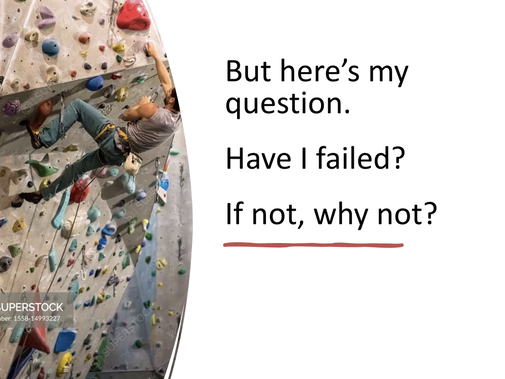
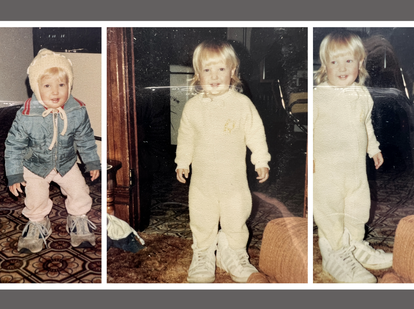

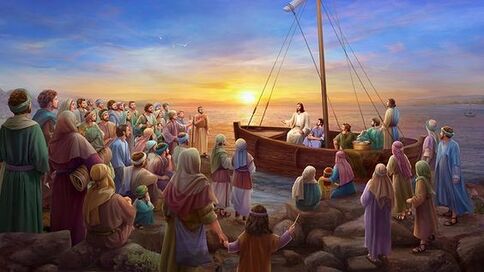

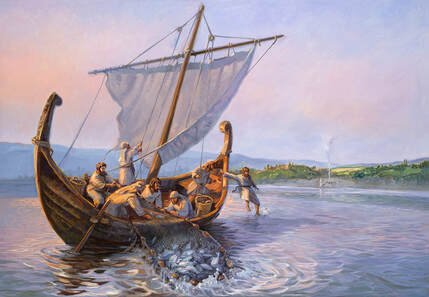
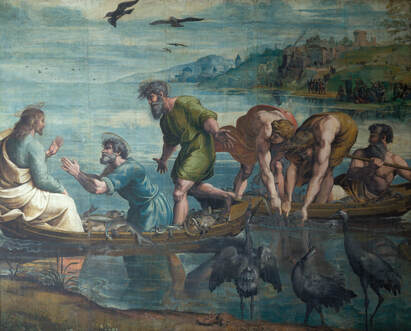
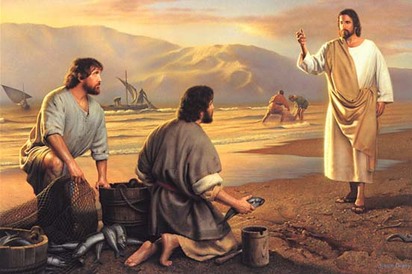
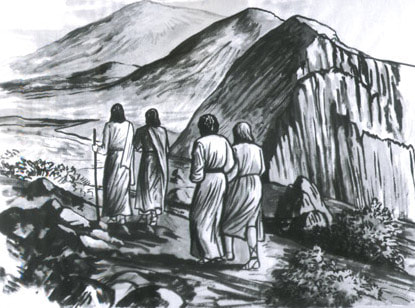


 RSS Feed
RSS Feed